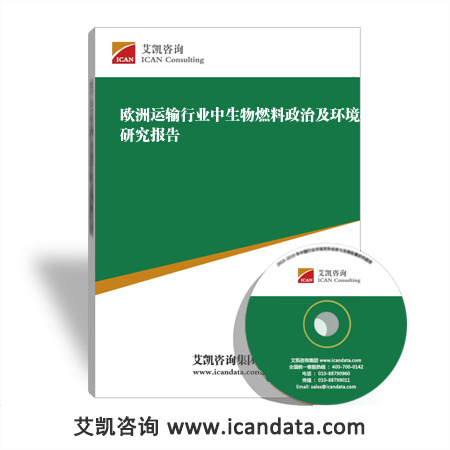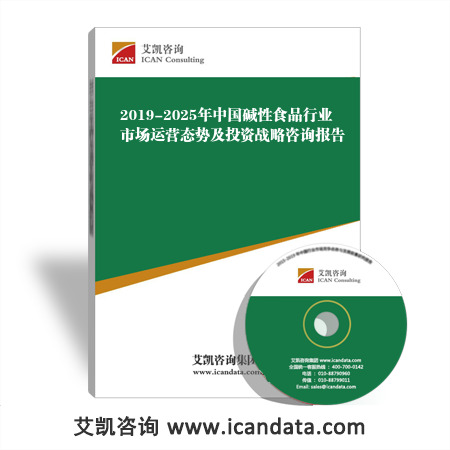数据来源与研究方法:
- 对行业内相关的专家、厂商、渠道商、业务(销售)人员及客户进行访谈,获取最新的一手市场资料;
- 艾凯咨询集团对长期监测采集的数据资料;
- 行业协会、国家统计局、海关总署、国家发改委、工商总局等政府部门和官方机构的数据与资料;
- 行业公开信息;
- 行业企业及上、下游企业的季报、年报和其它公开信息;
- 各类中英文期刊数据库、图书馆、科研院所、高等院校的文献资料;
- 行业资深专家公开发表的观点;
- 对行业的重要数据指标进行连续性对比,反映行业发展趋势;
- 通过专家咨询、小组讨论、桌面研究等方法对核心数据和观点进行反复论证。
报告简介:

Overview
Introduction
This brief provides an update of the environmental landscape and legislation surrounding biofuels. It considers the current controversies surrounding biofuel supply and outlines how this has impacted political support for the fuel at a national and EU level.
摘要
|
目录及图表 DATAMONITOR VIEW |
1 |
|
CATALYST |
1 |
|
SUMMARY |
1 |
|
SOURCES |
1 |
|
ANALYSIS |
2 |
|
Since 2003, the EU has introduced a number of measures to encourage the use of biofuels |
2 |
|
The 2003 Biofuels Directive has been the main source of legislation encouraging the uptake of biofuels |
2 |
|
The Energy Crop Premium has acted as a strong incentive for EU farmers to grow energy crops |
3 |
|
Despite all EU Member States having set targets for biofuels, they have generally been unsuccessful at meeting them |
4 |
|
Only seven Member States reached their biofuels consumption target in 2006 |
4 |
|
The majority of EU Member States have set their biofuels consumption targets to 2010 |
5 |
|
Excise duty exemption and blending obligations are the main tools used by governments to encourage the use of biofuels |
6 |
|
A number of EU Member States use annual blending obligations to meet their targets |
7 |
|
Tax exemptions for biofuels have been the traditional carrot used to encourage the consumption of biofuels |
8 |
|
Sweden and France have been the most innovative with regards to offering additional incentives |
9 |
|
Current controversies surrounding biofuel supply have weakened the political argument for biodiesel and bioethanol |
10 |
|
International organizations have been particularly critical of the effect that biofuels have had on food prices |
10 |
|
Studies have claimed that even when analyzed on a well-to-wheel basis biofuels emit more CO2 than fossil fuels |
11 |
|
Reports outlining the negative effects of biofuels have provided a number of recommendations |
12 |
|
While generally remaining committed to the Biofuels Directive, the enthusiasm of some of the main EU Member States has begun to wane |
14 |
|
While targets will remain, efforts are being made to reduce the negative impact of the production of biofuels |
15 |
|
A number of proposals have been put forward to decrease the harm done by the production of biofuels |
15 |
|
In the longer term, politicians hope that second-generation technology will ultimately enable biofuels to be produced in a less damaging way |
16 |
|
APPENDIX |
17 |
|
Further reading |
17 |
|
Forthcoming |
17 |
|
Ask the analyst |
17 |
|
Datamonitor consulting |
17 |
|
Disclaimer |
17 |
|
List of Figures |
|
|
Figure 1: In 2005, German farmers had 1.4% of the country's utilized farmland under the Energy Crop Premium |
3 |
|
Figure 2: Germany surpassed its 2006 biofuels target by 4.3 percentage points |
4 |
|
Figure 3: Most EU Member States have given themselves a target for biofuels to account for 5.75% of total road fuel by 2010 |
5 |
|
Figure 4: Almost all countries reduce excise duty on biofuels |
6 |
|
Figure 5: Austria, Finland, the Netherlands and Slovakia have placed a legal obligation on fuel retailers to incorporate 5.75% biofuels in 2010 |
7 |
|
Figure 6: Only four EU Member States do not offer a complete or partial reduction on fuel duty for biofuels |
8 |
|
Figure 7: One study has shown that when calculated on a well-to-wheel basis, ethanol vehicles emit 93% more CO2 than regular gasoline vehicles |
11 |
|
Figure 8: 90% of the 25 industry executives interviewed believed that biofuels production causes food price increases |
13 |
|
Figure 9: Of the EU Member States that have announced their stance on biofuels in 2008, many have voiced concerns about consumption targets |
14 |
|
Figure 10: Three options are currently being discussed by EU Member States which are aimed at improving the sustainability of biofuels |
15 |
欧洲生物燃料
















